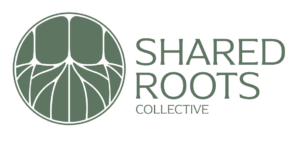Community-Centered Healing: Restorative Justice in Action
April is Sexual Assault Awareness Month. Coordinated each year by the National Sexual Violence Resource Center (NSVRC) and supported by survivor advocacy groups and organizations across the country, SAAM focuses on raising awareness about the prevalence of sexual harm, providing support resources for survivors, and educating communities on prevention strategies. The focus of this year’s NSVRC campaign for Sexual Assault Awareness Month is “Building Connected Communities,” uplifting “the role of inclusive, equitable, and connected communities in reducing sexual abuse, assault, and harassment.”
The role of community in a survivor’s journey to justice and healing cannot be overstated. Sexual harm can profoundly disrupt an individual’s sense of identity, community, and belonging – a disconnection felt by millions in the U.S. alone. The NSVRC reports that 80 percent of women have experienced some form of sexual harassment and 1 in 5 girls and women have experienced an attempted or completed rape, most before the age of 24. Yet at the time when these survivors most need the support of their communities, our current justice systems provide only limited, restrictive, and isolating options to seek justice and healing.
To protect any potential case, the current criminal legal system requires survivors to report, recount, and engage on their own. While some jurisdictions do provide compassionate and capable victim advocates, these persons are unknown to the survivor and unlikely to be from their community. And once the criminal case is over – usually, as in the vast majority of reports, before any charges are filed – the survivor no longer has access to this support.
Recognizing these limitations of conventional justice systems, Shared Roots Mediation seeks to use restorative and transformative justice to bring together the survivor’s community not only to provide support but also to create a culture of allyship for survivors and active prevention for intimate harm overall. Whereas the criminal legal system focuses solely on the isolated incident of sexual harm and on punishing the person it finds most responsible, our approach to holistic healing and justice allows a survivor and their community to identify and address underlying beliefs, attitudes, and biases that allow sexual harm to happen in the first place. Reconnecting a survivor to their community will often require confronting long-held assumptions and addressing other conflicts that are ignored by or inappropriate for the legal system. Restorative and transformative justice provides a flexible, expansive forum in which the broad needs and concerns of the survivor and community can be fully addressed.
As we observe this year’s Sexual Assault Awareness Month, Shared Roots Mediation asks you to join us in rewriting the definition of justice for survivors, expanding it to embrace and include the community survivors need to heal and thrive. By building connected communities, we seek to reimagine justice for all.




